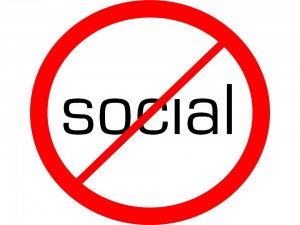 In an interesting article for the BBC, “Will digital addition clinics be big in 2013?”, Nic Newman gives seven trends to look out for this year. Newman reports that social media and mobile technology will be at the heart of digital innovation and “today we are some of the most active social networkers in the world – sharing our party pictures, our music playlists and our deepest secrets with hardly a moment’s thought. More than 60% of online users actively maintain a Facebook profile, and social networking is our favourite activity online in terms of time spent.”
In an interesting article for the BBC, “Will digital addition clinics be big in 2013?”, Nic Newman gives seven trends to look out for this year. Newman reports that social media and mobile technology will be at the heart of digital innovation and “today we are some of the most active social networkers in the world – sharing our party pictures, our music playlists and our deepest secrets with hardly a moment’s thought. More than 60% of online users actively maintain a Facebook profile, and social networking is our favourite activity online in terms of time spent.”
As a business owner, I keep returning to the thoughts – how can I make occupational health more accessible in the digitally social world we live and work in? How can I use this new media to advance my business and develop something new and innovative? The problem is that as an Occupational Health Adviser, sometimes let in to people’s deepest secrets, chaotic lives and occasionally tragic and crippling ill health, my instinct is to close all the doors, lock all the cupboards and uphold the precious consent that I have been given and say only what is absolutely necessary to whoever is asking the questions. Anti-social media is more the name of the game.
Social media is out there shouting at whoever will listen and plenty who won’t. It’s brash, indiscriminate, vulgar, hilarious and at times, all consuming. With Amazon and ebay, you can buy anything you will ever want or need. With Twitter and Facebook you can find an opinion on all of it – all at the same time. Occupational health is different. It sometimes feels like we move in the shadows. We absorb the stories and information we receive and convert that to discreet and measured advice giving nothing of the background away that is not already known and consented to. It’s our advice that counts, not the gory details of the back story. Believe me, most of the time truth really is stranger than fiction and there really is nowt so queer as folk. But none of that is for public consumption, however much of a good read or tweet it would make.
So the social media remit of occupational health will need to remain as tweets and blogs like this. You can have our thoughts on the world in which we work, our opinions on the law and best practice. We can retweet and share the varied opinions of others. And if you can think of a new and innovative way in which you would like to receive occupational health advice, you might be able to have that too – just let me know. Be aware though that once the discussion gets a bit personal, it might also get a bit antisocial for the current social media hungry and twitter savvy world.

Leave A Comment
You must be logged in to post a comment.